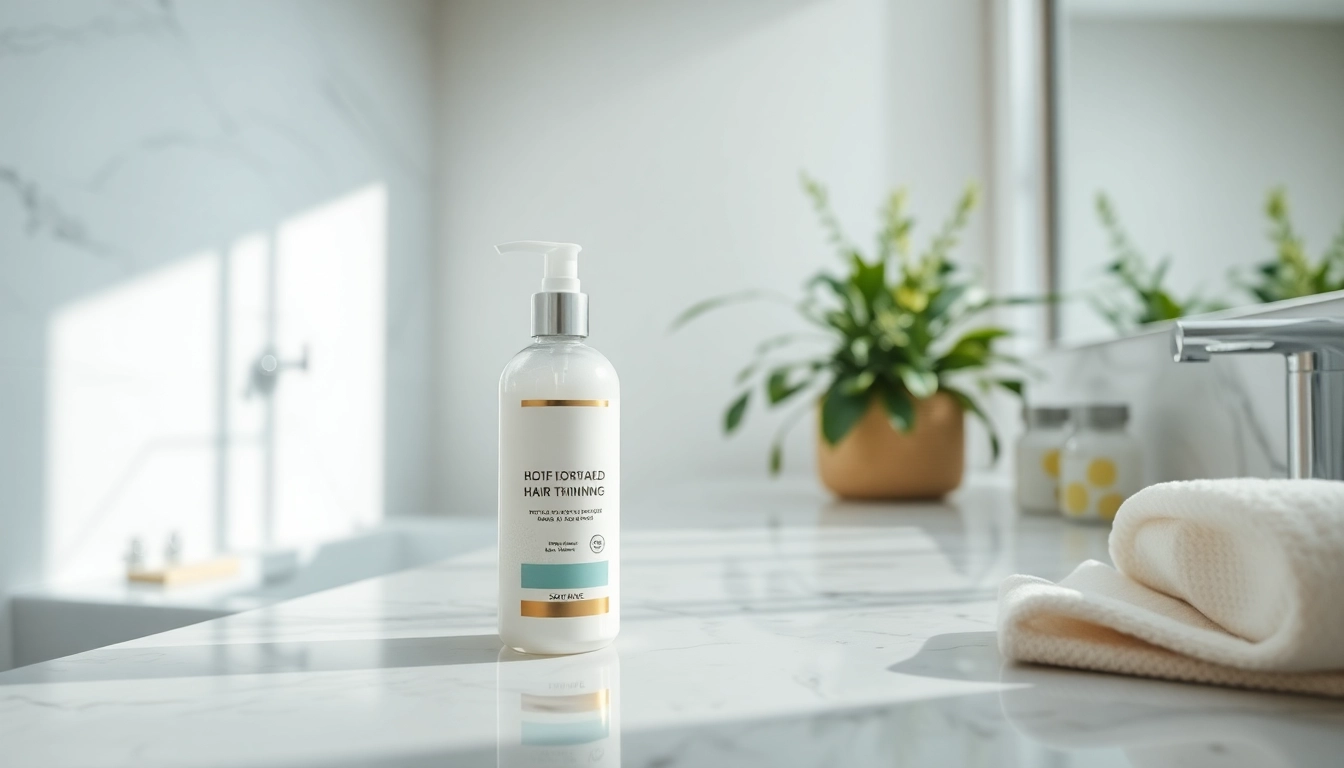Understanding Hair Thinning: Causes and Effects
Hair thinning is a common issue that affects both men and women, often leading to feelings of self-consciousness or anxiety about one’s appearance. Understanding the causes and effects of hair thinning is crucial for developing effective strategies for prevention and treatment. This guide will delve into the common causes of hair thinning, the impact of stress on hair health, and the role of nutrition in maintaining robust hair growth.
Common Causes of Hair Thinning
Many factors can contribute to hair thinning, ranging from genetics to lifestyle choices. One of the leading causes is hereditary hair loss, known as androgenetic alopecia, which affects both men and women. Hormonal changes, particularly during pregnancy, menopause, or thyroid issues, can also lead to thinning hair.
Medical conditions such as alopecia areata, a disorder that causes unpredictable hair loss, or scalp infections, can contribute to hair thinning as well. Meanwhile, certain medications, including those for cancer, arthritis, and high blood pressure, may have side effects that lead to hair loss. Lastly, environmental factors like pollution and exposure to harsh chemicals can further degrade hair health.
Impact of Stress on Hair Health
Stress is a significant contributor to hair thinning and can lead to a condition known as telogen effluvium, where hair follicles prematurely enter the resting phase. This condition usually occurs a few months after a stressful event, resulting in noticeable hair shedding. Managing stress through techniques like mindfulness, exercise, and adequate sleep can help mitigate its impact on hair health.
How Nutrition Affects Hair Growth
Nutrition plays a pivotal role in the health of your hair. Deficiencies in essential nutrients such as vitamins A, C, D, E, B vitamins, zinc, iron, and omega-3 fatty acids can lead to hair thinning. A balanced diet rich in fruits, vegetables, lean proteins, and healthy fats can support hair growth and strength. Foods such as spinach, fatty fish, eggs, and nuts can be particularly beneficial in nurturing your hair from within.
Choosing the Right Hair Thinning Shampoo
When it comes to selecting a shampoo that combats hair thinning, understanding the ingredients and the formulation can make a significant difference. A quality hair thinning shampoo can nourish the scalp, strengthen the hair, and promote a healthy environment for hair growth. Here, we’ll explore key ingredients to look for, the benefits of sulfate-free formulas, and how to evaluate product labels effectively.
Key Ingredients to Look For
Identifying shampoos enriched with beneficial ingredients is vital. Look for products containing biotin, which is known to strengthen hair and promote growth. Other nourishing ingredients include saw palmetto, which may help block hormones that contribute to hair loss, and caffeine, which can stimulate blood circulation to the scalp, enhancing hair follicle health. Proteins like keratin and silk amino acids can also bolster hair strength and resilience.
Benefits of Sulfate-Free Formulas
Sulfates are common in conventional shampoos but can be harsh on the hair and scalp, leading to dryness and irritation. Sulfate-free shampoos, including those designed for thinning hair, are more gentle and help maintain natural oils, promoting healthier hair. Without sulfates, these shampoos can better support scalps that may be sensitive or prone to dryness, which in turn can help improve hair thinning.
How to Evaluate Product Labels
When selecting a hair thinning shampoo, understanding how to read labels is essential. Start by checking the ingredient list for those key components mentioned earlier. Additionally, look at the concentration of active ingredients and ensure they are listed near the top of the list. It’s beneficial to be wary of products that contain lots of artificial fragrances or parabens, as these can potentially irritate your scalp and lead to further hair thinning.
Best Practices for Hair Care
Adopting best practices for hair care can enhance the efficacy of your hair thinning shampoo and improve overall hair health. This section will cover daily routines for thinning hair, scalp massage techniques to stimulate growth, and natural remedies that can complement your chosen products.
Daily Routine for Thinning Hair
Your daily hair care routine should be gentle and supportive of hair health. Start with washing your hair two to three times a week using a sulfate-free shampoo to prevent stripping hair of its natural oils. Always follow with a nourishing conditioner to help detangle and protect your hair. Additionally, avoid excessive heat styling and opt for air-drying whenever possible.
Scalp Massage Techniques
Integrating scalp massages into your routine can significantly benefit hair health. Regular massages improve blood circulation to the hair follicles, promoting healthy growth. This can be done in conjunction with your shampooing routine by using your fingertips to gently massage the scalp in circular motions for about 5 to 10 minutes. You may also use essential oils like rosemary or peppermint to enhance this treatment and invigorate your scalp.
Natural Remedies to Complement Shampoo
In addition to using specialized shampoos, consider natural remedies that can support healthy hair growth. Ingredients like aloe vera, coconut oil, and castor oil have properties that nourish and hydrate the scalp and hair. Regular treatments with these natural oils can provide deep conditioning, maintain moisture balance, and promote a healthier environment for hair growth.
Product Comparisons: Hair Thinning Solutions
The market is flooded with products purporting to address hair thinning. To navigate through the plethora of options, it’s helpful to look at product comparisons that include reviews of top competitors, pricing strategies, and an overview of user feedback and ratings.
Top Competitors Reviewed
When considering hair thinning shampoos, brands like Nioxin, Viviscal, and Pura D’or are well-known in the marketplace. Nioxin offers systems tailored to different hair types and thinning stages, promoting a healthy scalp environment. Viviscal, enriched with a marine complex, claims to foster hair growth from within. Pura D’or is a sulfate-free option that includes a blend of herbs and is known for its therapeutic qualities. Each of these brands has distinct advantages, making them worthy of consideration based on individual needs.
Pricing Strategies in the Market
Pricing for hair thinning shampoos can vary significantly. High-end brands may price their products based on the quality of ingredients and the science behind their formulations. Meanwhile, more affordable options can be found that still offer effective ingredients without breaking the bank. It’s crucial to balance price with performance. Sometimes, a higher price can correlate with trustworthy ingredients that offer better outcomes.
User Feedback and Ratings Overview
Investigating user feedback and ratings is instrumental in making informed choices. Many consumers share their experiences through reviews on retail websites and beauty forums. Look for patterns in comments regarding the effectiveness of the shampoo on hair thinning and any side effects. High ratings paired with detailed feedback can help you ascertain whether a product is likely to work for your specific hair care needs.
Long-Term Solutions for Thinning Hair
While shampoos can be an essential part of addressing hair thinning, they are not the sole solution. Taking a holistic approach ensures more sustainable results. Here, we’ll discuss integrating lifestyle changes, when to seek professional help, and inspiring case studies showcasing success stories in overcoming hair thinning.
Integrating Lifestyle Changes
Lifestyle changes play a vital role in combating hair thinning. Incorporating regular exercise improves overall circulation, including to the scalp, which can enhance hair growth. Maintaining a stress-free environment through yoga or mindfulness practices can also yield positive results. Additionally, avoiding smoking and limiting alcohol consumption can contribute to improved hair health.
When to Seek Professional Help
If hair thinning persists despite your efforts, consider consulting a dermatologist or trichologist. These professionals can provide a thorough evaluation, identify underlying medical conditions, and recommend prescription treatments or therapies. Early intervention is key in many cases, as it allows for more effective management of the situation.
Case Studies: Success Stories
Numerous individuals have had significant success stories in managing hair thinning. For instance, a woman in her mid-30s started using a combination of a specialized hair thinning shampoo and biotin supplements, leading to noticeable improvements within six months. Similarly, a man who incorporated scalp massage and improved his diet reported stronger, thicker hair after a year of commitment to these changes.



